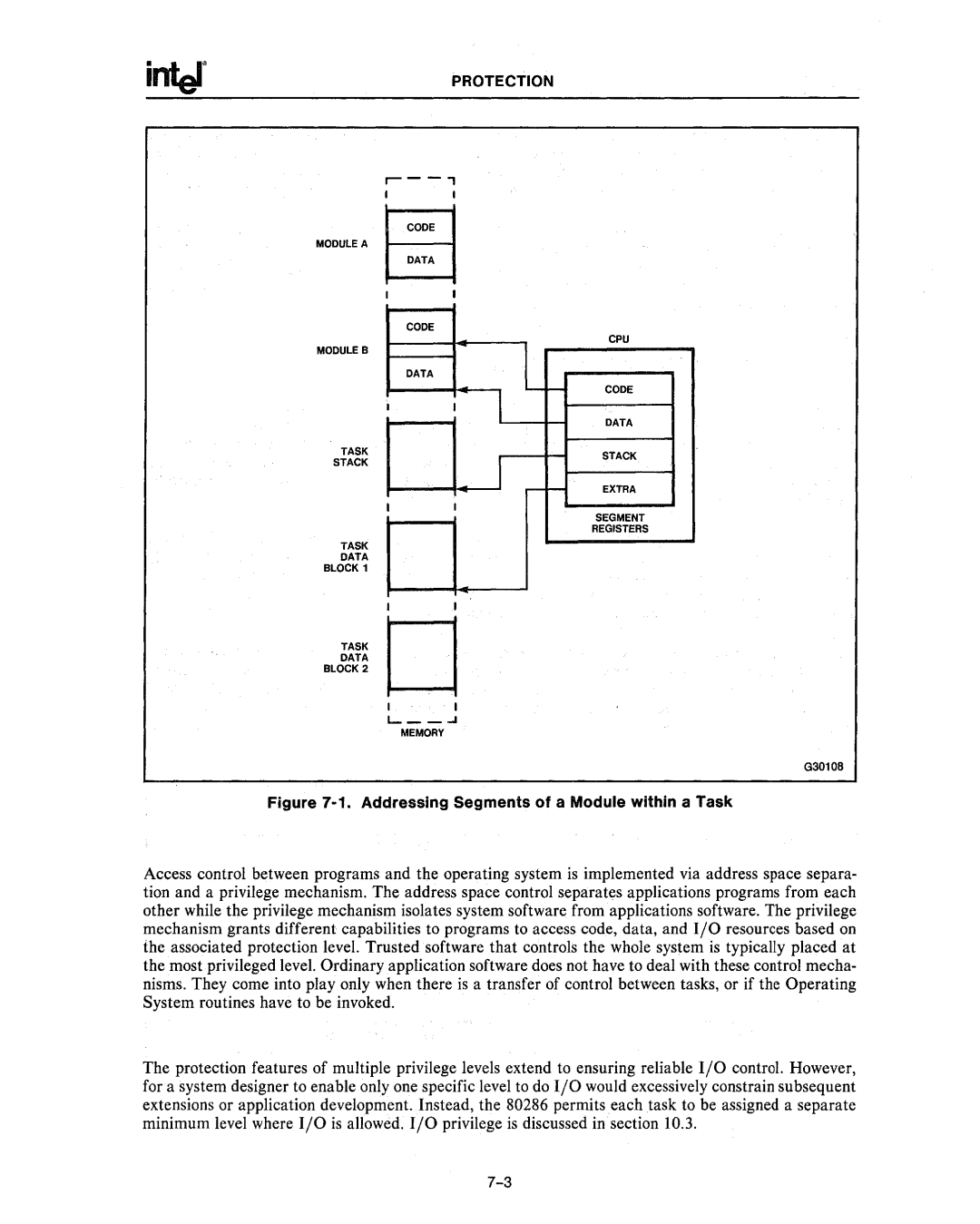
interPROTECTION
,
I | I |
| |
MODULEA B |
|
| |
S |
|
| |
CODE |
|
| |
MODULEB | I | L_ | |
DATA | |||
|
| ||
'I | I |
| |
TASK | I |
| |
STACK |
| ||
| - - |
II
TASK
DATA
BLOCK 1
TASK oII
DATA
BLOCK 2
II
1- __ ....1
MEMORY
CPU
CODE
DATA
STACK
EXTRA
SEGMENT
REGISTERS
G3010B
Figure 7-1. Addressing Segments of a Module within a Task
Access control between programs and the operating system is implemented via address space separa- tion and a privilege mechanism. The address space control separates applications programs from each other while the privilege mechanism isolates system software from applications software. The privilege mechanism grants different capabilities to programs to access code, data, and I/O resources based on the associated protection level. Trusted software that controls the whole system is typically placed at the most privileged level. Ordinary application software does not have to deal with these control mecha- nisms. They come into play only when there is a transfer of control between tasks, or if the Operating System routines have to be invoked.
The protection features of multiple privilege levels extend to ensuring reliable I/O control. However, for a system designer to enable only one specific level to do I/O would excessively constrain subsequent extensions or application development. Instead, the 80286 permits each task to be assigned a separate minimum level where I/O is allowed. I/O privilege is discussed in section 10.3.
